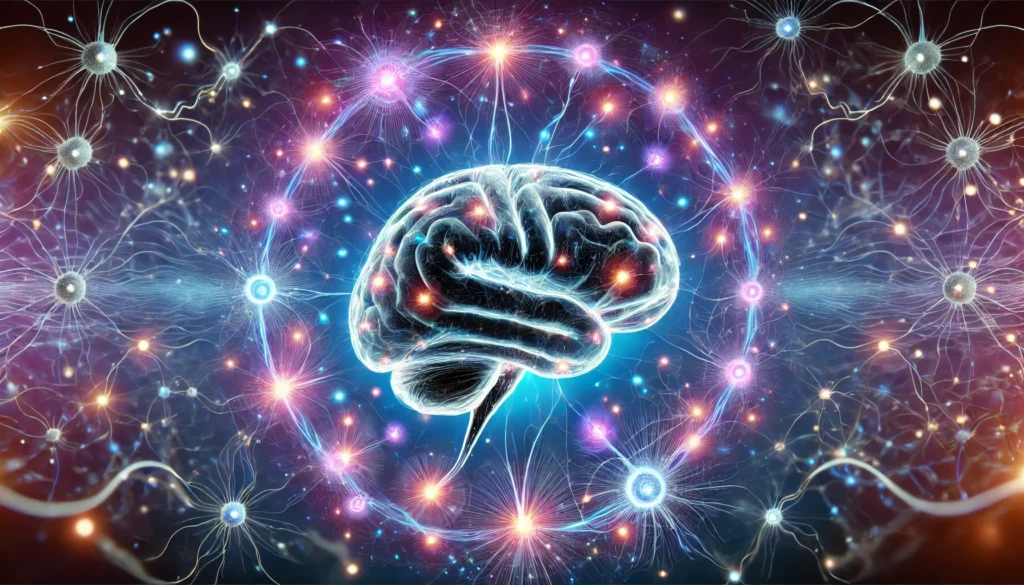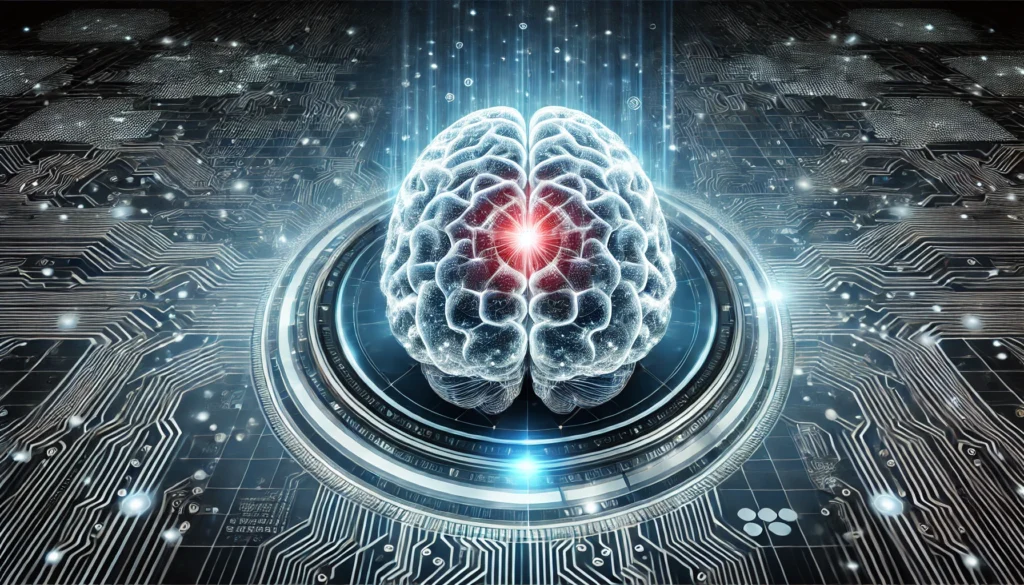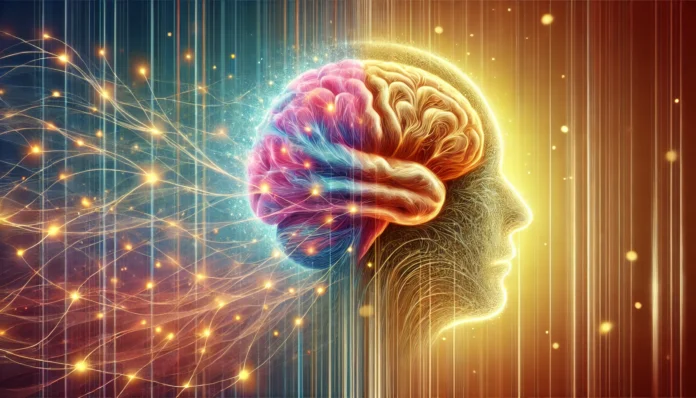The human brain is a marvel of biological engineering, a complex organ that governs thought, emotion, memory, and bodily functions. Its intricate structure and processes have fascinated scientists and medical professionals for centuries, leading to the development of extensive brain medical terminology. Understanding the medical term for brain provides insights into cognitive aging and longevity, shedding light on how this vital organ evolves over time and what steps can be taken to promote long-term brain health. The terminology surrounding the brain offers more than just a lexicon for medical professionals; it provides a window into the mechanisms of cognition, neurodegeneration, and the potential for longevity-enhancing interventions. By exploring brain medical terminology, individuals can gain a deeper appreciation of how brain health influences overall well-being and aging.
You may also like : Best Things for Brain Health: Expert-Backed Strategies to Keep Your Mind Sharp
The Origin and Significance of Brain Medical Terminology
Medical terminology related to the brain has its roots in ancient civilizations, with Greek and Latin words forming the foundation of modern neuroscience. The word “brain” itself is derived from the Old English “brægen,” which is believed to have connections to the Proto-Germanic language. Scientific nomenclature for different parts of the brain, such as the cerebrum, cerebellum, and hippocampus, reflects both anatomical function and historical linguistic influences. The cerebrum, the largest part of the brain, takes its name from the Latin “cerebrum,” meaning “brain” or “skull.” The cerebellum, meaning “little brain,” highlights its role in motor control and coordination. Meanwhile, the hippocampus, named after its seahorse-like shape, plays a crucial role in memory formation. These terms not only define structural components but also provide insights into their respective functions and their influence on cognitive aging.
Understanding the medical term for brain helps clarify the interconnections between brain structure and function, particularly in the context of aging. As individuals grow older, neural plasticity declines, and the risk of neurodegenerative conditions such as Alzheimer’s disease and Parkinson’s disease increases. The terminology associated with these conditions, such as “amyloid plaques” and “neurofibrillary tangles,” describes pathological changes that contribute to cognitive decline. Familiarity with these terms enables individuals to make informed decisions about brain health and seek early interventions when necessary. Furthermore, medical terminology related to cognitive function, including “executive function,” “working memory,” and “synaptic pruning,” offers insights into how the brain adapts to age-related changes. By exploring the language of neuroscience, individuals can gain a more comprehensive understanding of the aging brain and strategies for maintaining cognitive vitality.
How Brain Terminology Informs Cognitive Aging Research
Cognitive aging is a natural process influenced by genetic, environmental, and lifestyle factors. The study of brain medical terminology provides a framework for understanding the mechanisms underlying cognitive decline and identifying potential interventions. Terms such as “neurogenesis” and “synaptic plasticity” describe the brain’s ability to generate new neurons and adapt to changing cognitive demands. Research has shown that activities such as exercise, intellectual engagement, and social interaction promote neurogenesis and enhance synaptic plasticity, thereby supporting cognitive longevity.
Aging is also associated with changes in brain volume and connectivity, often referred to as “cortical atrophy” and “white matter integrity.” Cortical atrophy describes the gradual thinning of the brain’s outer layer, which can impact memory and executive function. White matter integrity refers to the condition of the brain’s myelinated nerve fibers, which facilitate communication between different brain regions. Deterioration in white matter integrity has been linked to slower cognitive processing and an increased risk of dementia. Understanding these terms enables researchers and healthcare professionals to develop targeted interventions aimed at preserving brain function and delaying cognitive decline.
Additionally, the concept of “cognitive reserve” plays a crucial role in the discussion of brain aging. Cognitive reserve refers to the brain’s ability to compensate for age-related damage by utilizing alternative neural pathways. Individuals with higher levels of cognitive reserve, often due to education, lifelong learning, and mental stimulation, exhibit greater resilience against neurodegenerative diseases. By incorporating this terminology into public health discussions, medical professionals can advocate for strategies that enhance cognitive reserve and promote healthy aging.

The Role of Brain Medical Terminology in Longevity Science
Longevity science seeks to extend the human lifespan while maintaining optimal cognitive and physical health. Brain medical terminology provides a foundation for understanding the relationship between brain function and longevity, highlighting key factors that influence lifespan and quality of life. Terms such as “oxidative stress,” “inflammation,” and “mitochondrial dysfunction” describe cellular processes that contribute to aging and neurodegeneration. Oxidative stress results from an imbalance between free radicals and antioxidants, leading to cellular damage in the brain. Chronic inflammation, often linked to conditions such as cardiovascular disease and diabetes, exacerbates cognitive decline and increases the risk of dementia. Mitochondrial dysfunction impairs energy production in brain cells, further accelerating the aging process.
Scientific advancements in brain health and longevity research have introduced new terminology related to neuroprotection and regenerative medicine. “Brain-derived neurotrophic factor” (BDNF) is a protein that supports neuronal growth and plasticity, playing a vital role in cognitive function and mental well-being. Increasing BDNF levels through lifestyle interventions, such as exercise and diet, has been shown to enhance brain health and reduce the risk of age-related cognitive decline. Similarly, “senolytics” are emerging compounds that target senescent cells, which accumulate with age and contribute to neuroinflammation. Understanding these terms empowers individuals to explore evidence-based strategies for maintaining brain function and extending longevity.
Furthermore, the integration of neuroscience and longevity science has led to the development of personalized approaches to brain health. “Precision medicine” and “biomarkers of aging” are terms that describe the use of genetic and physiological data to tailor interventions based on individual risk factors. Advances in artificial intelligence and neuroimaging have enabled the identification of early indicators of cognitive decline, allowing for proactive measures to preserve brain function. By familiarizing themselves with these terms, individuals can stay informed about cutting-edge developments in longevity science and make informed choices about their brain health.

Frequently Asked Questions: Understanding Brain Medical Terminology and Cognitive Longevity
1. What does brain mean in medical terminology?
In medical terminology, the word “brain” refers to the central organ of the nervous system, responsible for processing sensory information, controlling bodily functions, and enabling cognitive processes such as thought, memory, and decision-making. The medical term for brain is “encephalon,” derived from Greek, where “en-” means “inside” and “kephalē” means “head.” This term is commonly used in neuroscience and medical diagnostics when referring to brain-related conditions, such as “encephalopathy” (a disease affecting brain function). The brain is further categorized into specific regions, including the cerebrum, cerebellum, and brainstem, each responsible for different physiological and cognitive roles. Understanding brain medical terminology enhances our comprehension of how neural networks and brain structures interact to support mental and physical well-being.
2. Why is understanding brain medical terminology important for cognitive health?
Having a grasp of brain medical terminology can empower individuals to take proactive steps in maintaining cognitive health by recognizing early signs of neurological conditions. Terms like “cognitive reserve” refer to the brain’s ability to compensate for damage through neuroplasticity, which can be enhanced by engaging in intellectual activities and social interactions. Familiarity with terms such as “neuroinflammation” and “oxidative stress” allows individuals to make informed lifestyle choices that reduce risks associated with cognitive decline. Additionally, understanding terms like “myelin sheath degeneration” or “hippocampal atrophy” can help individuals comprehend medical diagnoses and treatment options when consulting healthcare professionals. This knowledge fosters a deeper awareness of brain function and the impact of aging on cognition.
3. What is the difference between the terms cerebrum and cerebellum?
The cerebrum and cerebellum are two distinct parts of the brain, each with specialized functions. The cerebrum is the largest region of the brain, responsible for higher-order cognitive functions such as reasoning, problem-solving, and voluntary movement control. It consists of two hemispheres and houses the cerebral cortex, which plays a critical role in memory, sensory processing, and emotional regulation. The cerebellum, on the other hand, is a smaller structure located at the back of the brain, primarily involved in coordinating movement, balance, and motor learning. Damage to the cerebrum can lead to cognitive impairments, while dysfunction in the cerebellum may result in coordination difficulties and motor deficits. Understanding these distinctions within brain medical terminology aids in recognizing how different brain regions contribute to overall function and longevity.
4. How does the medical term for brain relate to neurodegenerative diseases?
The medical term for brain, “encephalon,” is often used in the classification of neurodegenerative diseases such as “encephalopathy,” which refers to general brain dysfunction caused by injury, disease, or toxic exposure. Conditions like Alzheimer’s disease, Parkinson’s disease, and Huntington’s disease all involve progressive degeneration of neural structures, leading to impaired cognitive and motor functions. The study of neurodegeneration frequently involves terms such as “beta-amyloid plaques” and “tau protein tangles,” which are pathological markers of diseases like Alzheimer’s. By understanding these terms, individuals can better appreciate the biological underpinnings of cognitive decline and explore preventative strategies such as maintaining an anti-inflammatory diet, engaging in mental exercises, and staying physically active to support brain longevity.
5. What role does neuroplasticity play in cognitive aging?
Neuroplasticity refers to the brain’s ability to adapt, reorganize, and form new neural connections throughout life, which is crucial for cognitive aging and longevity. Even as people age, their brains retain some capacity for neuroplasticity, which can be stimulated through continuous learning, physical exercise, and social engagement. Scientific research has shown that activities such as learning a new language, playing musical instruments, or engaging in problem-solving exercises promote synaptic growth. Medical professionals often use brain medical terminology like “synaptic plasticity” and “long-term potentiation” to describe the strengthening of neural pathways that result from consistent mental stimulation. Understanding these concepts encourages individuals to adopt lifelong habits that enhance brain resilience and slow cognitive decline.
6. How do oxidative stress and inflammation contribute to brain aging?
Oxidative stress and chronic inflammation are two major contributors to brain aging and neurodegenerative diseases. Oxidative stress occurs when there is an imbalance between free radicals and antioxidants, leading to cellular damage in the brain. Over time, this can impair neural function and contribute to conditions such as Alzheimer’s disease. Inflammation, often caused by lifestyle factors like poor diet, lack of exercise, and chronic stress, exacerbates this damage and accelerates cognitive decline. Understanding brain medical terminology related to these processes, such as “neuroinflammation” and “mitochondrial dysfunction,” helps individuals recognize risk factors and implement strategies to mitigate damage, including consuming antioxidant-rich foods, exercising regularly, and managing stress effectively.
7. How does brain terminology help in understanding stroke and its effects?
Brain medical terminology is crucial in understanding strokes, which occur when blood flow to the brain is disrupted, leading to potential brain damage. The terms “ischemic stroke” and “hemorrhagic stroke” describe two main types of stroke: ischemic, caused by a blood clot blocking a vessel, and hemorrhagic, caused by a ruptured blood vessel. Medical professionals use terms like “cerebral infarction” to describe tissue death due to oxygen deprivation and “aphasia” to refer to language impairment resulting from stroke-related brain damage. Awareness of these terms helps individuals recognize early stroke symptoms, such as sudden confusion or weakness on one side of the body, enabling timely medical intervention that can improve recovery outcomes.
8. What emerging treatments exist for promoting brain longevity?
Recent advances in neuroscience and longevity research have led to promising treatments aimed at preserving brain function and extending cognitive health. Therapies such as “stem cell regeneration” and “gene therapy” offer potential solutions for repairing damaged brain tissue and mitigating age-related decline. Scientists are also exploring the role of “senolytics,” compounds designed to eliminate senescent cells that contribute to inflammation and cognitive dysfunction. Additionally, research on “brain-computer interfaces” (BCIs) suggests that future technologies may enhance cognitive performance by facilitating direct communication between the brain and external devices. Understanding this evolving brain medical terminology enables individuals to stay informed about innovative treatments that may support cognitive health and longevity in the coming years.
9. How do hormones affect cognitive function and aging?
Hormones play a vital role in brain function, influencing mood, memory, and overall cognitive performance. Declining levels of hormones like estrogen, testosterone, and thyroid hormones have been linked to age-related cognitive decline. Medical terms such as “hormone replacement therapy” (HRT) and “neuroendocrine regulation” are commonly used to describe interventions that aim to balance hormone levels for brain health. Additionally, the stress hormone cortisol, when chronically elevated, contributes to neuroinflammation and impairs memory formation. By understanding these hormonal influences on cognition, individuals can take proactive measures such as managing stress, maintaining a balanced diet, and consulting healthcare providers for hormone-related concerns.
10. Can diet and nutrition influence brain longevity?
Yes, diet plays a crucial role in maintaining brain health and longevity. Certain nutrients, such as omega-3 fatty acids, flavonoids, and B vitamins, have been shown to support cognitive function and protect against neurodegeneration. The Mediterranean diet, rich in antioxidants and healthy fats, is associated with lower risks of cognitive decline. Brain medical terminology such as “ketogenic metabolism” and “neuroprotective compounds” is often used in nutritional neuroscience to describe how specific dietary patterns impact brain aging. Incorporating brain-boosting foods like fatty fish, blueberries, and leafy greens into daily meals can contribute to long-term cognitive resilience and overall well-being.

Conclusion: Embracing Brain Medical Terminology for Lifelong Cognitive Health
Understanding brain medical terminology is essential for navigating the complexities of cognitive aging and longevity. The medical term for brain and related terminology provide valuable insights into brain structure, function, and the factors that influence aging. By familiarizing themselves with these terms, individuals can enhance their awareness of brain health, recognize early signs of cognitive decline, and implement strategies to support long-term cognitive function.
Cognitive aging is not an inevitable decline but a process that can be influenced by lifestyle choices, medical advancements, and continuous learning. Engaging in activities that promote neurogenesis, maintaining cognitive reserve, and adopting neuroprotective strategies are key to preserving brain health. The growing field of longevity science continues to explore innovative approaches to extending lifespan while maintaining cognitive vitality, offering new hope for individuals seeking to optimize their well-being.
By integrating brain medical terminology into everyday discussions, society can foster a greater appreciation for the importance of brain health and encourage proactive measures for cognitive longevity. Knowledge is a powerful tool, and understanding the language of neuroscience empowers individuals to make informed decisions about their health, ultimately contributing to a future where cognitive resilience and longevity go hand in hand.
brain function and aging, neurodegenerative diseases, cognitive health strategies, brain longevity research, brain plasticity, memory enhancement techniques, neurological health tips, brain aging prevention, mental clarity exercises, brain inflammation causes, healthy brain lifestyle, brain nutrition and diet, brain structure and function, neuroprotection methods, cognitive decline solutions, brain health supplements, brain regeneration science, neural pathway development, mindfulness for brain health, stress management for cognition
Further Reading:
Cognitive medicine – a new approach in health care science
Assessing cognitive decline in the aging brain: lessons from rodent and human studies
What to know about cognitive functioning
Disclaimer
The information contained in this article is provided for general informational purposes only and is not intended to serve as medical, legal, or professional advice. While Health11News strives to present accurate, up-to-date, and reliable content, no warranty or guarantee, expressed or implied, is made regarding the completeness, accuracy, or adequacy of the information provided. Readers are strongly advised to seek the guidance of a qualified healthcare provider or other relevant professionals before acting on any information contained in this article. Health11News, its authors, editors, and contributors expressly disclaim any liability for any damages, losses, or consequences arising directly or indirectly from the use, interpretation, or reliance on any information presented herein. The views and opinions expressed in this article are those of the author(s) and do not necessarily reflect the official policies or positions of Health11News.


